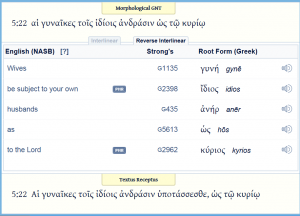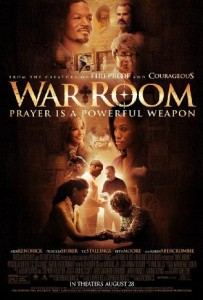 [This is a repost, with minor edits, of my guest blog on Dan Erickson’s site December, 2012.]
[This is a repost, with minor edits, of my guest blog on Dan Erickson’s site December, 2012.]
I am a Christian. I believe the Bible is the inspired word of God. I prescribe to a literal, conservative interpretation of God’s word. I love studying biblical covenants and find a deep richness of covenant references throughout the Bible. I view covenant as a common thread woven through both testaments, tying promises in Genesis to prophecies in Revelation. I often describe our God as a covenant God for Whom all interactions with mankind are based on covenant. Covenant relationships and the keeping of covenant vows are a very big deal to me.
So why does someone, with my background and convictions, write posts titled “Divorce is Sin…Says Who?” “Free to Remarry,” “God of Divorce” and “The It-Takes-Two Lie”?
I have been accused, by people who don’t know my story, of trying to justify the divorce of my first marriage.
I have been asked, by people who do know my story, why I’ve felt compelled to change my perspective on biblical divorce. “Joe,” they say, “you clearly had biblical grounds for divorce. Your situation met the criteria of every exception clause as being permissible. Why do you continue to search scriptures regarding marriage and divorce?”
And that’s just it. My situation did meet the criteria of every “exception clause.” I lived seventeen years in an abusive marriage to someone who intentionally and repeatedly inflicted deep emotional wounds, who seemed drawn to the intrigue of lies when the truth would have served her better, and for whom every word and action seemed designed to manipulate…even though I would have done anything for her without the need of manipulation.
Yet, I wasn’t seeking a divorce. I wasn’t asking whether divorce was “permissible” or if my situation met the criteria of “exception clauses.” My heart was not pursuing divorce. My heart was pursuing a healthy marriage based on love and mutual trust. My heart was pursuing a stable, loving environment for our family of four precious children. My heart was pursuing what I understood to be God’s will for our family.
I wasn’t concerned with what was “permissible.” I was only concerned with the relentless pursuit of God’s will and God’s best for our family.
My heart was broken…over and over again. I was wounded and hurting, crying out to God for help and healing.
I saw many answers to prayer in that marriage….many miraculous softenings of her heart…many steps appearing to lead toward healing.
I also learned a lot about myself and improving communication. The many counseling sessions were, in general, a healthy thing for me…and seemed a step in the right direction at the time.
And yet…each positive step turned out to be so temporary…
As the years passed, new lies surfaced, exposing deeper and more recent betrayals. The lessons learned in counseling became tools used for the purpose of deceiving me further, while continuing to deeply wound me with betrayal of covenant vows. New communication tools were used, not for strengthening relationship, but rather for giving the appearance of deepening intimacy while actually concealing deeper betrayals.
I prayed fervently and continuously. Yet, as the passing of time continued to reveal ever deeper deceptions and betrayals, there was also a need to face the facts…to realize that no matter how much I wanted to see healing of the relationship, that might not be the end result.
The summer of 2000 was, for me, a time of intense prayer and fasting. I was doing a lot of running, and as my feet wound out the miles, I continually begged God for healing.
“How long, Lord, must I wander in this wilderness of pain and trauma? Please, Lord, I need your healing touch. My heart is broken. My marriage is broken. My soul is crushed. Lord, I don’t know what to do. Please, Lord, lead me out of this wilderness into a place of healing!”
And I began to hear God’s answer…softly at first…then stronger and more persistent, “Go in and possess the land” (Joshua 1:11).
“Lord, you can’t mean that! You know how many times I’ve been deceived and how deeply I’ve been wounded! You want me to put aside all my legitimate fears and act as though my marriage and heart are healed? That’s crazy! It makes no sense!”
And yet, I felt His consistent prompting, “Be strong and courageous. Do not be discouraged or dismayed. Go in and possess the land.”
I recalled the many stories of God’s miraculous work. I was heartened that perhaps this is what God was going to do in my marriage. Perhaps, this was my Jordan River to cross before seeing God’s miraculous victories!
So, I asked Him, “Lord, are you saying you’re going to heal my marriage? That her heart will be changed toward me and our relationship will be restored?”
“Go in and possess the land.”
“Lord, what does that mean? You want me to make myself vulnerable with no promise from you? You never did that in the Bible! You always gave a promise when asking for obedience in difficult circumstances. Lord, what is your promise to me, today?”
“Be strong and courageous. Do not be discouraged or dismayed, and the Lord, Your God, will be with you, wherever you go.” (Joshua 1:9)
So I began, once again, to change my attitude and behavior toward her. I began to draw in my boundaries and lower my defenses. I dropped the wait-and-see attitude I’d held since the last major betrayal, and began, yet again, to actively pursue her heart.
And she responded by withdrawing further.
Over the course of that next year, as I attempted to open up toward her, she drew further back from me. I still faced each new issue head-on, refusing to sweep anything under the rug, wanting true healing of our relationship. I was actively engaging in the relationship while refusing to side-step or ignore any known issues. Finally, one evening while discussing a recent issue, she asked for a divorce, saying, “I just don’t want to do this anymore.”
There were still a lot of steps toward healing. God was faithful through the divorce and later custody battles. Not every battle was victorious from my perspective, but He continued to lead me and guide me…and to comfort and heal me.
A counselor asked me once, “You do realize, don’t you, that there is absolutely nothing you could have done differently to prevent this divorce?”
“Yes, I can see that.”
“And you do understand,” he continued, “that the divorce had nothing to do with you, personally? That no matter who she married, it would have ended in divorce?”
“Yes, I can see that, too. Thank you!”
And that’s the thing…the thing that so few Christians really understand…that I did not understand, myself, before experiencing it.
The health and longevity of a relationship cannot be determined by one individual. Yes, we must each do our own part and be willing to love sacrificially. Yet, no amount of sacrificial love, by one party, can ensure a healthy or lasting relationship.
In a marriage, we are each responsible for wholeheartedly living out our covenant vows in faithfulness, for the duration of that covenant. However, neither partner is responsible for the longevity of the covenant.
I entered that marriage as an idealistic young man, believing if I loved deeply enough, believed strongly enough, prayed fervently enough, somehow God would always intervene to heal and restore the marriage relationship.
I learned, although God is always faithful to His promises, He does not violate human free will. If one marriage partner refuses to surrender their will to Him, He will not force them to…and the marriage will not be healed.
I learned divorce is not always outside God’s will. Rather, in many situations, divorce is God’s direct and perfect will.
In my case, God asked me to follow a difficult path of obedience. That path did not lead to the marital restoration I hoped for. Rather, it led toward further hardening of her heart, resulting in divorce.
God redeemed me from that marriage of abusive bondage in much the same way He redeemed Israel from their covenant with Pharaoh. That divorce was a part of God’s perfect plan for my life, just as surely as deliverance from Egypt was part of His perfect plan for the nation of Israel.
God has used these experiences to drastically change my view of His heart toward His children who are enslaved in covenants of abusive bondage, or who have experienced divorce. In recent years, I have become more outspoken about my views on these topics.
I’m speaking out, not to justify my own actions, nor because of emotional pain or bitterness in regard to that marriage.
My actions in that marriage and divorce don’t require justification, and I am now happily married to a godly woman, with whom I enjoy raising and loving children and grandchildren.
I’m speaking out against a system of biblically unsubstantiated myths regarding divorce believed by many Christians, today.
These myths lead to legalistic judgmental attitudes toward God’s children who have experienced divorce or who are currently enslaved in an abusive marriage. They hold Christians in bondage and do not reflect God’s heart of love and redemption.
I speak out in an attempt to shine the light of God’s truth and hope in an area of blindness within the church.
I speak out in the hope someone in an abusive marriage will understand, in some situations, divorce is God’s perfect will and the godliest course of action.
I speak out in the hope someone who has experienced divorce will better understand God’s heart of redemption and will draw closer to His heart of love.
Who do you know in need of encouragement through divorce?
[Linked to Messy Marriage, Wild Flowers, Wellspring, Redeemed Life, Tell His Story ]
Like this:
Like Loading...
 This morning I am thinking about recent conversations with friends who are escaping abuse… and realizing anew how horribly the Divorce Mythology commonly believed among Christians turns the biblical message upside down.
This morning I am thinking about recent conversations with friends who are escaping abuse… and realizing anew how horribly the Divorce Mythology commonly believed among Christians turns the biblical message upside down.
 She graciously steered the conversation toward a topic she knew I like, “So, how do you make a horse go?”
She graciously steered the conversation toward a topic she knew I like, “So, how do you make a horse go?”
 My wife and I have been hearing about the movie War Room for months and finally made time to watch it together, this past weekend.
My wife and I have been hearing about the movie War Room for months and finally made time to watch it together, this past weekend.
